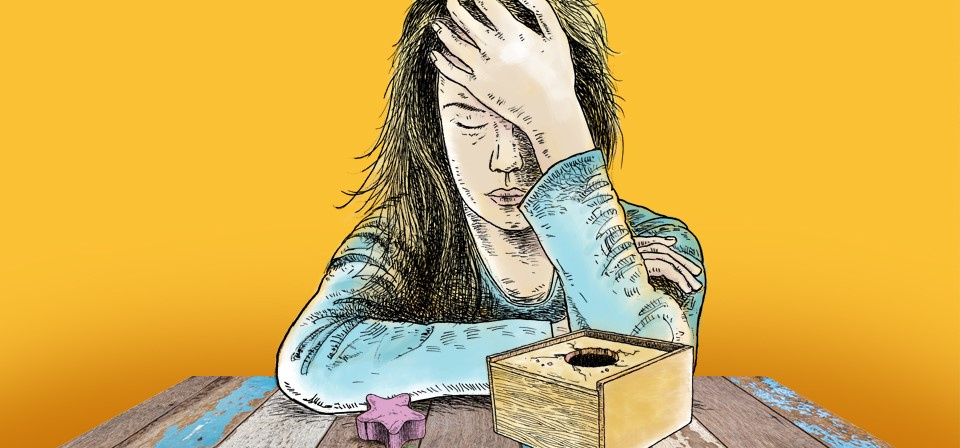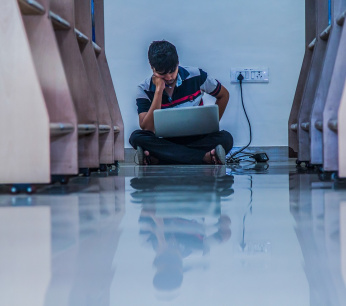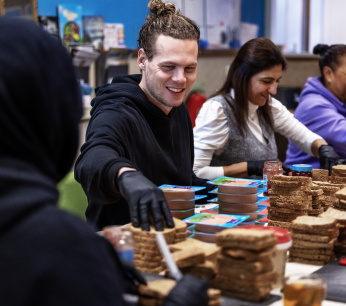Minister wants to speed up appropriate education
After the summer, Minister Dennis Wiersma will present a 'roadmap' to inclusive education in 2035. Meanwhile, successful examples, such as the Monkshood in Nijmegen, remain uncertain about their future.

Picture: Type tank
“It is high time we got going”, said Minister Dennis Wiersma firmly in the debate on March 30 with the Parliamentary Committee for Education, Culture and Science about the progress of the approach to improving appropriate education. He expressed his surprise at the 25 improvement measures and 12 legislative proposals that are 'still in the air'. The minister wants to bundle these together and speed up the process. Before the summer, he wants to submit new bills to the House in which, for example, the absenteeism approach and the right to be heard for students is arranged.
Wrestling
The minister also wants to quickly take concrete steps towards inclusive education, an ambition that is also stated in the coalition agreement. After the summer, he will come up with a 'road map' to achieve that goal by 2035. Several MPs are concerned about good examples of appropriate education that are now struggling to stay afloat.
Going to school together classes, in which children with a disability attend a regular school, for example, are still not recognized as an official education program, despite promises from the House of Representatives. As a result, they have to deal with regulations that can differ per municipality and they remain dependent on the goodwill of a partnership.
Does the minister have enough guts to change existing legislation and structures?
"What we hear back from the ministry is that these kinds of initiatives do not get off the ground because they do not fit within existing frameworks, but that is exactly why they work so well," said Lisa Westerveld, Member of Parliament GroenLinks, who wondered. whether the minister has the courage to change existing legislation and structures.
Insecure
The Monkshood in Nijmegen was also mentioned as a successful example of which the future uncertain is. Pupils with a disability or illness follow HAVO/VWO together with regular pupils within the Dominicus College, which has to close its doors soon. The board guarantees the survival of the Monkshood, but the department cannot stay in the same place. In addition, the national funding for this department is being phased out.
D66 MP Paul van Meenen emphasized that these kinds of facilities often have a supra-regional function: “Children come from different regions, which is why there was separate funding from the ministry. That it disappears is exactly against the line we want. I argue in favor of maintaining direct funding and thus the school.”
All the ingredients are there to make the Monnikskap go well, but we have to guarantee this
The minister wants to 'arrange' initiatives such as the Together to school class in secondary education and make them possible in the short term through education-care arrangements. He visits the Monkshood to hear what is going on. “We do not disagree that this works. There are many concerns, and I understand that, but at the same time we are in a certain jacket with choices that we have already made. We have agreed with joint ventures that they will pay for the support and the board has also given that guarantee. All the ingredients are there to make this happen, but we have to guarantee this, so I'm going after that."
Ambitious
The minister is also ambitious. For example, the legislative process should start at the beginning of 2023 for a national standard for basic support, something where the AOb since the introduction of appropriate education.
However, in the letter to the parliamentary committee, the union states that it must also be clear which resources are available in the lump sum: 'It is strange that the ministry appears unwilling to clarify this. For example, it cannot be made clear whether the standard is also financially feasible.'
Realistic
The House applauds the minister's diligence, but also asks for realistic glasses. Several MPs refer to the letter from the AOb, CNV and the Teachers' Collective and ask that the preconditions be put in order first, such as smaller classes, sufficiently qualified colleagues and extra hands in the classroom.
'Schools are in survival mode due to the increasing shortages and high work pressure. This makes taking meaningful steps unfeasible AOb† Minister Wiersma promises to reduce the workload and to combat the overload of teachers by investing more. Wiersma: “We include how we arrange the preconditions in the elaboration of the roadmap.”
Read here the letter of the AOb, CNV and the Teachers Collective
The Education magazine previously published the article 'System pushes home sitters into the corner', which also describes the struggle of the Together to school class


